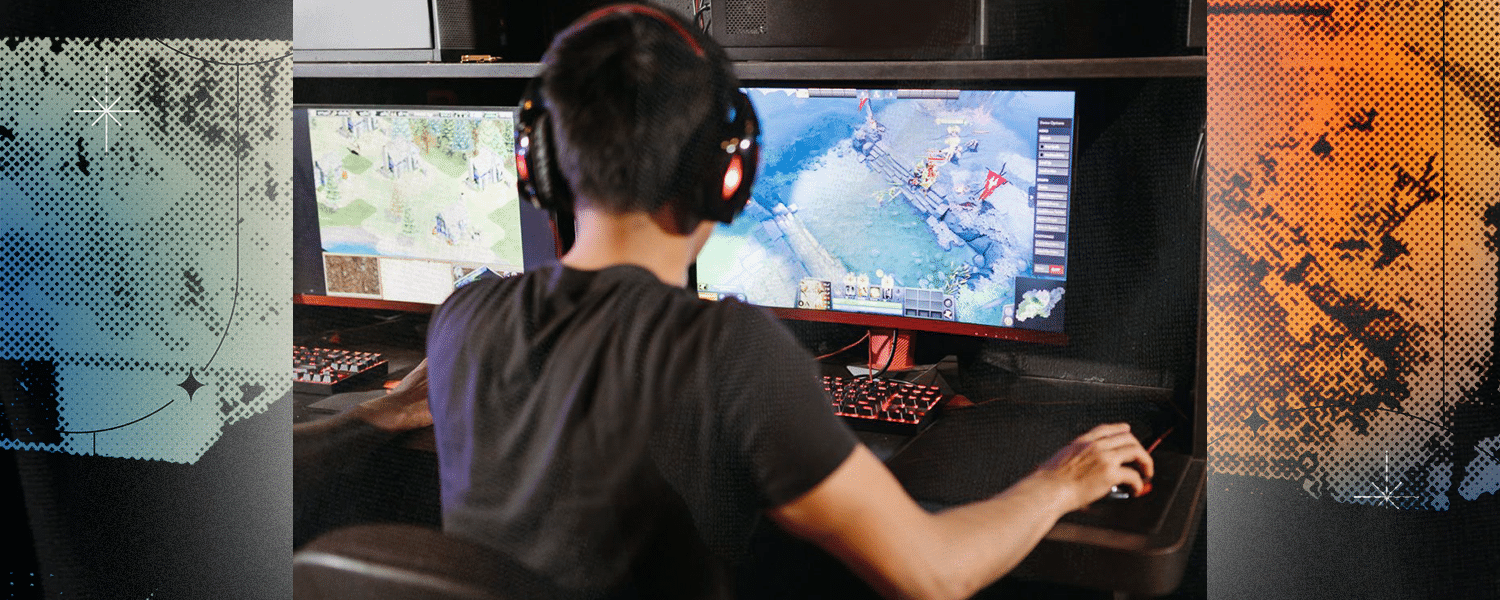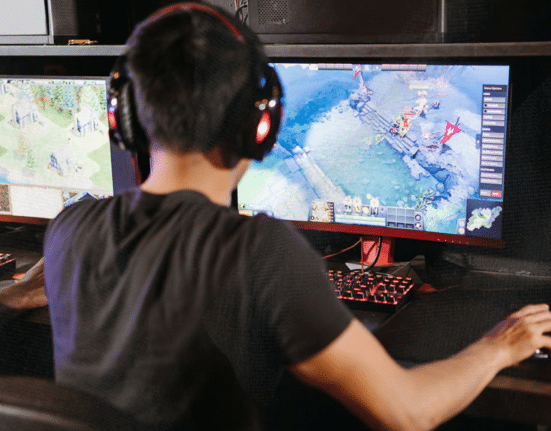PEOPLE often hear negative feedback about playing computer or online games, with many blaming it for a number of supposedly adverse effects, including on mental health.
Every Filipino kid has probably been told, “Kaka-computer mo ‘yan!” It is a line frequently used by Pinoy moms whenever their children experience discomfort or pain in their bodies, or get distracted from important matters.
While it is true that excessive online gaming can have negative effects on users, it doesn’t mean that this activity offers no benefits.
A recent study conducted by TotallyAwesome, a youth-first specialist marketing and media platform in the Asia Pacific, showed that it could actually help the mental health of the youth.
In its annual Youth-first Digital Insights research, the platform studied the impact of gaming on Gen Z and Gen Alpha’s mental health and engagement in their community.
Gen Zs are those who are 26 years old and below, while Gen Alphas are 13 years old and below.
The study found out that 50 percent of Gen Alpha and 43 percent of Gen Z in the Asia Pacific turned to gaming to relieve stress or anxiety.
The Philippines and Malaysia have the second highest percentage of Gen Z members using games to feel better whenever they’re stressed or anxious, with 56 percent.
Vietnam led the list with 60 percent. In third place was South Korea with 49 percent, followed by Indonesia and Singapore with 47 percent each.
The research also showed that 52 percent of Gen Alphas and 48 percent of Gen Zs cited gaming as a way to feel more connected with their family and friends.
There is a huge number of gamers in the Philippines at present, and for sure, each of them has their own reasons for choosing to continue playing games.
Here are the other benefits of gaming:
Gaming is fun
Jojo Macalma, a 26-year-old graduating student, first played games way back in 2003, when his dad bought a computer and let him try a multiplayer tactical first-person shooter video game.
As he grew older, Macalma was exposed to a variety of video games, especially when his family opened a gaming entertainment shop, popularly known to ‘90s kids as “videohan,” where gamers would need to insert a P1 coin in a slot to play the game. He also had fond memories of using the PlayStation at his neighbors’ and cousin’s house.
“It’s fun for me, especially open world games [because] I can explore the game myself,” he told republicasia.
“Some games also keep me busy when I am not doing anything,” he added.
Gaming also helps him develop his logical thinking and mathematical skills, which are helpful in his day-to-day life, he said.
“I mostly play PC games and I think it affects how I decide on some things because playing games makes me think more when I am interested in [it],” he said.
It helps them make connections
For 23-year-old technical support staff Blue Dizon, gaming is a way to build connections, both locally and globally.
Dizon became interested in games when his father introduced him to a retro game on the Nintendo Entertainment System.
He has played a wide selection of games, ranging from racing Sims, action-RPG, hack n’ slash, first-person-shooters, fighting games, puzzles, turn-based, and strategy games.
Exploring these did not only help him broaden his knowledge, it also helped him make friends.
“I do consider gaming as a healthy escape. It allows me to form connections to other people virtually,” he said.
It was a way for introverts like him to “have fun and make friends at the same time,” he added.
It’s a way to learn new languages
What started out as a curiosity to 18-year-old student Jhodie Jandog turned out to be a way for her to improve her vocabulary.
Jandog has been playing games since she was seven years old, and she said these helped her learn different languages whenever she would connect with other players from abroad.
She said she’s been improving her English through the games. She has also been learning to speak Japanese and Chinese.
“Hindi ko expected na ganito yung impact ng laro. Nagkaroon ako ng friend sa malalayo, three years na kaming mag-BFF. May nakilala ako mga ate at kuya ko na hindi ko in-expect na makaka-bonding ko sila nang masaya,” she said.
These individuals also helped her communicate with other people, she added.
Gaming can help to organize thoughts
Renz Jerald Velarde plays games to alleviate his stress. But more than that, Velarde said games offer space for him to clear his mind.
The 18-year-old college freshman first tried his hand at gaming when he was 10 years old, after he got curious about what his brother was playing. He took this opportunity to observe the players and learn more about games.
“Nalilibang [ako] and [gaming] also [helps me] to organize my thoughts whenever I am disoriented,” he said.
Play moderately
It cannot be denied that excessive gaming has adverse effects on the physical and mental health of gamers.
In an earlier interview with republicasia on video games, pediatrician Annie Ramos said that among their negative effects are eye strain, dry eyes, headache, and back and neck pain. Ramos also noted that young gamers tend to be short-tempered when they become addicted to games.
To prevent these, Macalma, Dizon, Jandog, and Velarde shared a few pieces of advice to their fellow gamers.
They suggest that people play not more than four hours a day.
Velarde said it is important to take a break from playing games to minimize their eyes’ exposure to the screen.
Macalma also said gamers should still enjoy their surroundings, instead of spending most of their time on games.
“Games can be immersive like a whole new world, especially new games, but nothing beats playing outside with friends,” he said.
Dizon agreed with this, and said people should go out of their comfort zone.
“By doing this, [you do not only] give yourself an option to easily manage your time for other important things or responsibilities, but it also helps your overall well being,” he said.
Jandog said that gamers should know their limitations and priorities.
“Iniisip ko kung ano magiging consequence kapag inuna ko yung laro, and may oras naman sa paglalaro eh. Kapag tapos mo na yung ginagawa mo, pwede ka na maglaro,” she said.









